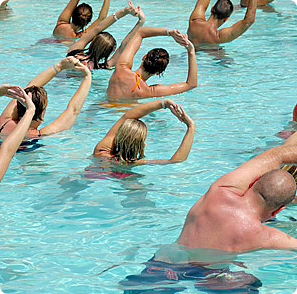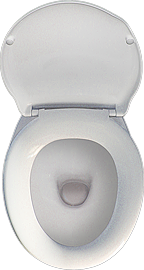 Herpes and WaterIn This Article
Many people are concerned about water and herpes and ask, "Does water spread it?"
If anyone were to visit a herpes support forum on the Internet during the summer, a common question would be seen. Many people who have herpes, especially genital herpes (herpes simplex virus- 2) want to know if herpes can be spread in water. People with HSV- 2 know that genital herpes is contagious. They ask understandable questions, such as: Does herpes spread through water?
Does herpes spread through water?The short answer, according to the Centers for Disease Control and Prevention, is no. Herpes is not spread through water. Genital herpes is a sexually- transmitted disease. This means it can only be spread by direct sexual contact with an infected partner. Oral herpes, better known as cold sores or fever blisters, is transferred by kissing or sharing certain personal possessions such as a toothbrush, drinking glasses and straws, and even bath towels. Can herpes be spread in a swimming pool, hot tub, or spa?People with herpes simplex- 2 are often quite concerned about spreading the disease in public or private swimming pools, hot tubs, and spa baths. They want to know if they should go swimming during an outbreak, or if they should go swimming at all.
The Centers for Disease Control and Prevention states that the most likely “germs” that a person might contract in a public swimming pool are parasites. The two most common parasites found in public swimming areas are the microbes Cryptosporidium and Giardia. These parasites come from dirty diapers and fecal material in the pool and are spread when someone drinks the pool water. According to Herpes.org, the chlorine and other pool chemicals present in public swimming areas should be enough to kill the herpes simplex virus. This is also true for bath and hot tub water if municipal tap water is used to draw the bath and there is no sexual contact while in the tub. Can herpes be spread by a water fountain or a toilet seat?
Toilet seats also harbor germs, both in public restrooms and at home. If a person has genital herpes and uses a public restroom, it is considered common courtesy to wipe the toilet seat with a baby wipe or moist toilette after use. Good hand washing technique after using the toilet with an antibacterial soap should be enough to kill germs, including the herpes simplex virus. The Mayo Clinic states that as long as people do not touch the splash guard on drinking water fountains, they are at little risk for any disease transmission. It is nearly impossible for the herpes simplex virus to be transferred via a toilet seat. How is herpes spread?Herpes simplex virus- 1 (oral herpes), is spread primarily by kissing. It is also spread by touching the infected sores or sharing drinking glasses, lipstick, cigarettes, and other personal items.
Herpes simplex virus- 2 (genital herpes), is a sexually- transmitted disease. Genital herpes is spread by sexual activity with an infected partner. The virus can be spread between outbreaks, and even by a partner who does not know he or she has the disease. Safe sex, using a condom, must be practiced at all times. SourcesHerpes- Cold Sores.com. “Herpes Transmission (how the virus can be spread)” Livestrong.com, “Aids and Herpes Swimming Pool Safety,” by Denise Wang Centers for Disease Control.org, “Avoiding Germs in Swimming Pools”
[+] Show All
|
| Next Article: Itching from Herpes? Learn How to Stop it |


Hello Sign In
Your Account


View
My Cart


 People who do not have herpes may be concerned about the risk of contracting herpes from swimming in a public swimming pool or another shared water facility.
People who do not have herpes may be concerned about the risk of contracting herpes from swimming in a public swimming pool or another shared water facility. Most adults are aware that public drinking fountains harbor germs. This is simply because people do not wash their hands before touching the water fountain push button or bar.
Most adults are aware that public drinking fountains harbor germs. This is simply because people do not wash their hands before touching the water fountain push button or bar. Herpes simplex virus- 1 can be spread to the genitals during oral sex, as well.
Herpes simplex virus- 1 can be spread to the genitals during oral sex, as well.